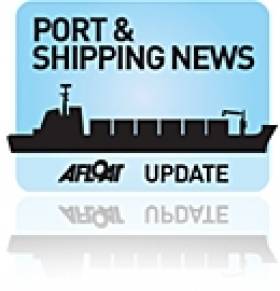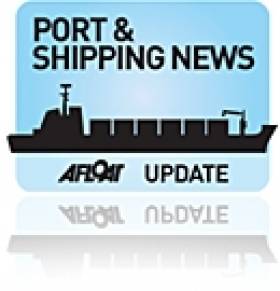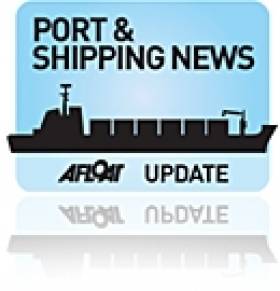Displaying items by tag: Flogas
Varadkar Supports Deepwater Port at Bremore
Drogheda Port Company successfully managed to navigate the global economic downturn with an improved and solid performance for 2010, delegates where informed during its annual report released yesterday, writes Jehan Ashmore.
Speaking about the performance of Drogheda Port Company, Leo Varadkar TD, Minister for Transport, Tourism and Sport said; "I congratulate the company on its solid trading performance in 2010 following a difficult year in 2009. Both imports and exports through the port returned to growth in 2010. The company has managed its costs well and remains profitable. I support the company's plans to develop the existing port and indeed to continue to progress its proposal for a new deepwater port at Bremore.
The Minister added "this country's return to economic prosperity will be export-led and Irish ports will play an important role in facilitating that trade. The overall structure of the State's ports will be reviewed later this year as part of the current Ports Policy Review and will take account of the recent recommendations of the McCarthy Group. Irrespective of the outcome, well managed and profitable ports such as Drogheda will continue to play an important role in serving the market and facilitating industry and jobs.
As part of the ongoing the Ports Policy Review a Consultation Document was issued in October 2010, which highlighted the important role of ports to facilitate the return to economic growth when it occurs. In addition new capacity will be required in the medium to long term and this needs to be planned for now.
The consultation also acknowledges the continuing trend towards larger ships requiring deep-water ports, the reduced availability of ships to serve smaller ports and the emergence of the concept of port-centric logistics as a key driver for future port development.
As for this year "a number of new port records were established in 2010" said Mr. Paul Fleming, Drogheda Port chief executive. "In March, the longest ever vessel to be accommodated in the port, the Rusich 1 at over 128m in length berthed at Tom Roes Point Terminal". The 4,970 tonnes vessel arrived from Vyborg, Russia with a cargo of fertiliser.
Mr Fleming also referred to the largest gas tanker ever to visit its facility at the Flogas LPG terminal when the 1,720 dwt tonnes Thresher docked last October. The Dutch flagged Thresher had arrived loaded with a cargo from the Whitegate Refinery, Cork Harbour and is operated by Chemgas which operate one of the most modern gas carrier fleets in the world.
In addition to last year's performance, first quarter figures for 2011 were revealed with trading volumes reporting an increase of 18% based from the same quarter for last year. The rise was primarily driven by export volumes of existing and new commodities.
Tankers Thresher To Twaite Break Drogheda Records
The Twaite surpasses the previous record only set on 19 August when the smaller 100m Thresher called to Drogheda. Like the Twaite, the Thresher is owned by Chemgas. The Dutch company's inaugural arrival in August represented a new shipping operator to the Co. Louth port. The 4,750 dwt Thresher was built in 2006 and had discharged 1,300 metric tonnes of the cargo at the Flogas facility which employs 100 staff.
Drogheda Welcomes New Gas Operator
The Co. Louth port recently welcomed the 4,750 tonnes MV Thresher, the largest ever gas tanker which was making a delivery of over 1,300 metric tonnes of gas to the Flogas terminal on the banks of the river Boyne. The Thresher is operated by Chemgas, a new shipping company for the Flogas plant, which employs approximately 100 people.
"Chemgas operates some of the most modern and best equipped gas carriers in the world, so we are delighted to have them as our new shipping company," said Paul O'Connell, Flogas operations director.
In welcoming the new generation of gas tanker, Mr Paul Fleming, CEO of Drogheda Port Company stated that "Flogas is one of the ports premier customers and its commitment to the future development of its facility and the port is reflected in its use of larger and more efficient vessels with an improved carbon footprint".
Chemgas is a Dutch based shipping company which commissioned the 100m Thresher which was built in 2006 and entered service the following year.































































